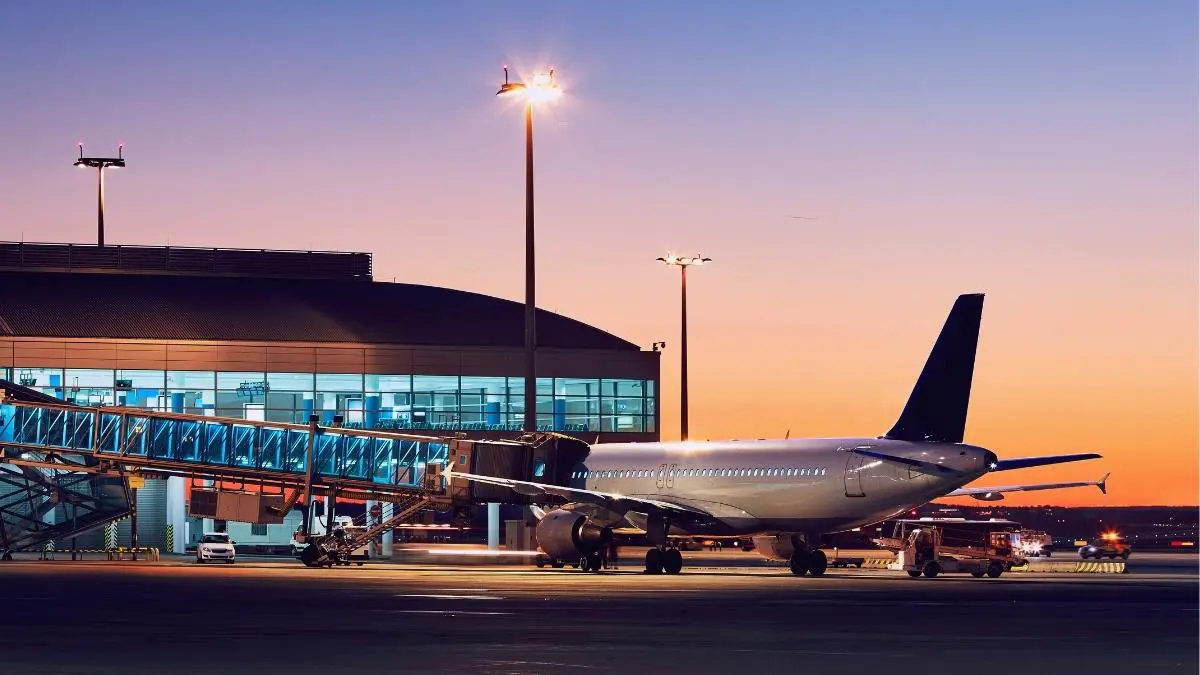Noida’s long-anticipated international airport is now inching closer to reality, with the Uttar Pradesh government reaffirming that the project is likely to be operational by November this year. The development comes after a high-level state review meeting held over the weekend, in which top officials assessed the airport’s construction progress and remaining regulatory approvals.
Spread across 1,334 hectares near Jewar in Gautam Buddh Nagar district, the Noida International Airport project has faced multiple delays since its foundation stone was laid in November 2021. Originally scheduled for completion in September 2023, the timeline was subsequently revised several times due to pending construction milestones, particularly the terminal building. Officials now confirm that more than 80% of the physical infrastructure is complete, with airside development—including the runway and aircraft movement areas—over 90% finished. Key supporting infrastructure, including an air traffic control building, sewage and water treatment plants, and a 750-metre road interchange with the Yamuna Expressway, has also reached advanced stages of completion.
During the latest review meeting conducted by state authorities, the concessionaire, Yamuna International Airport Pvt Ltd (YIAPL), presented an updated timeline: domestic and cargo operations could commence by mid-September, with full-fledged international services launching by November 2025. This phased approach is aimed at expediting the project while ensuring that critical systems receive timely safety and regulatory clearances. Despite the optimism, challenges remain. The airport is yet to receive essential security clearance from the Bureau of Civil Aviation Security (BCAS) and an aerodrome licence from the Directorate General of Civil Aviation (DGCA). Officials acknowledge that these approvals are time-sensitive and could impact the targeted operational dates if delayed.
The Uttar Pradesh government has imposed a daily penalty of Rs 10 lakh on the concessionaire since January 1, 2025, for failing to meet earlier deadlines. This financial pressure appears to have pushed stakeholders to accelerate on-ground activities. Roofing and interior works for the passenger terminal are currently underway, and installation of Communication, Navigation, and Surveillance (CNS) and Air Traffic Management (ATM) systems by the Airports Authority of India is nearing completion. Once operational, the airport is expected to significantly decongest Delhi’s Indira Gandhi International Airport (IGI) and boost economic development across western Uttar Pradesh. In its first phase, Noida International Airport aims to handle 12 million passengers annually. Plans for future expansions will eventually scale this capacity to 70 million passengers per year, positioning it as Asia’s largest airport and the fourth largest globally.
The airport is also being developed with sustainability at its core. Project design includes energy-efficient terminal architecture, provision for solar power generation, and rainwater harvesting infrastructure. Industry experts highlight that the airport could serve as a model for integrating green infrastructure with large-scale public transportation hubs. Connectivity is another major focus. The state is working closely with transport agencies to ensure seamless access to the airport from Delhi, Noida, Greater Noida, and Agra. Dedicated metro links, high-speed rail connectivity, and upgraded highway systems are all being considered as part of the broader airport-linked development zone.
The Noida airport project is being developed under a public-private partnership model. Zurich Airport International AG, through its subsidiary YIAPL, holds the concession to build and operate the airport for 40 years. Experts in infrastructure financing see this as a crucial case study in India’s ongoing push for asset monetisation and foreign investment in transport infrastructure. In addition to passenger services, the airport will also house dedicated cargo facilities, aimed at transforming Noida into a significant logistics hub for northern India. This multimodal potential is expected to attract investment across warehousing, e-commerce, and agri-export sectors, strengthening the region’s economic base.
While optimism surrounds the November target, officials remain cautious. Execution speed, regulatory compliance, and weather conditions could all influence the final timeline. However, the overarching sentiment from the recent review is clear: the project is in its final leg, and the government is determined to see it through. The successful commissioning of Noida International Airport would not only symbolise a milestone in India’s aviation growth but also mark a new chapter in urban planning and regional development in the NCR. If delivered on time, it could become a benchmark for future infrastructure megaprojects in the country.
Also Read : Bhubaneswar airport T3 terminal to integrate arrival and departure facilities


